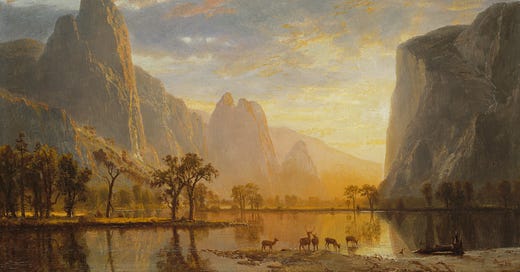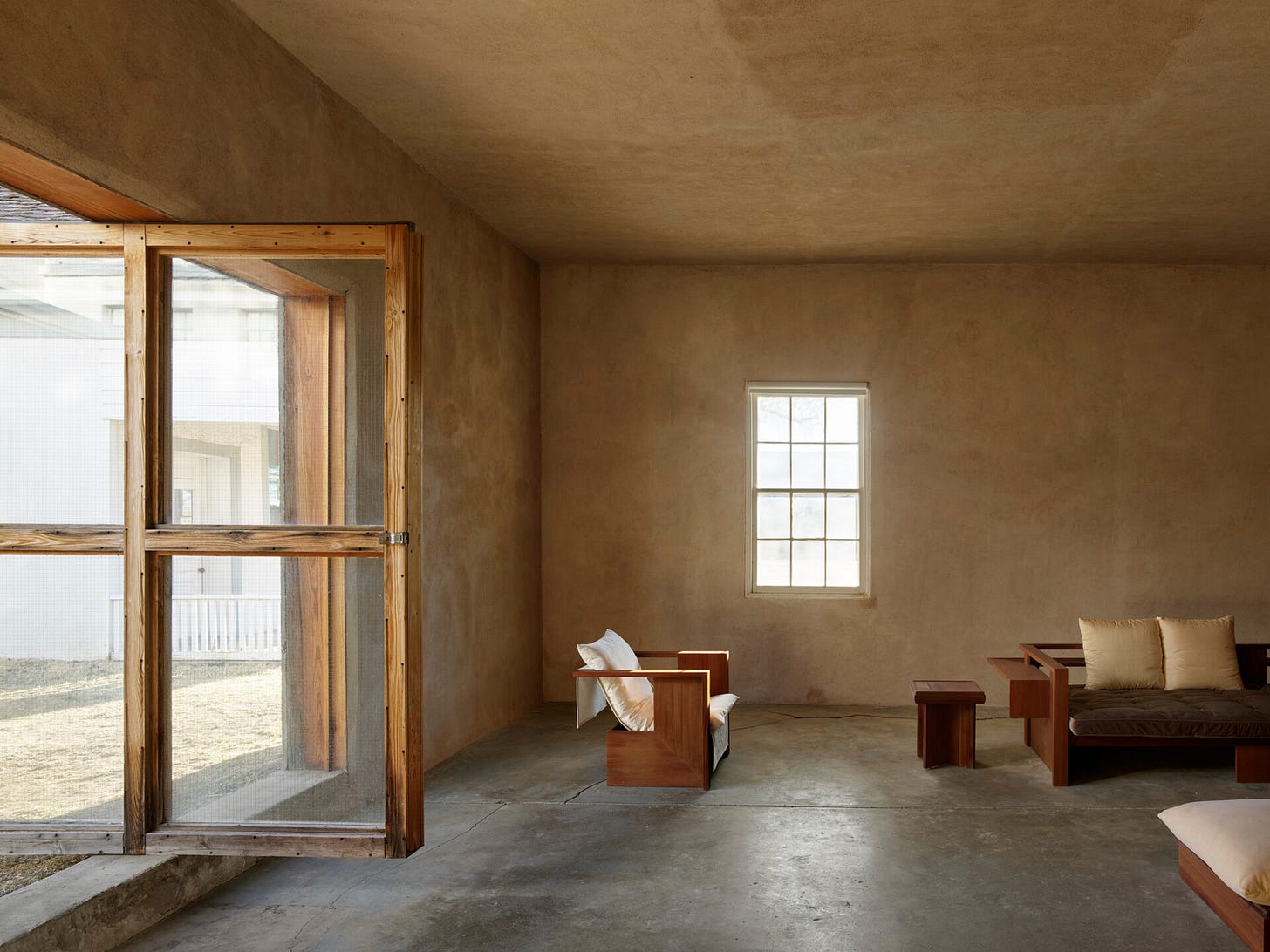Whyte Building, Donald Judd 1990
Let It In
If I look back on my early steps, the theme is that I wasn’t hoping for the best - I was just hoping to avoid the worst. I was afraid.
Inspiration would knock on my door, but by the time I unhooked the chain, undid the bolt, turned the locks, and silenced the inner alarms… it would move on.
Creativity asks for less guarding and more trust. Leave the door open.
Little Boy Looking at the Sea, Edward Hopper 1891
Hesitation & Hiding
What it looks like in my life:
I procrastinate, because the project seems monumental.
Excessive editing causes me to take too long to finish and move on.
My skill development suffers, because I don’t have mistakes to learn from.
Holding the work to an impossible standard assures stress and anxiety.
I hide myself and my unexpressed contributions.
OK, what can I do about it?
Scale it down into something (pieces) I can deal with calmly.
Don’t be distracted by premature criticism. Forgive the first draft.
Try not to take it too seriously. Turn the whole thing into a piece of play.
Again: Relax. Focus on the relative unimportance in the grander scheme.
Share it sincerely. Frame it as a humble - but heartfelt - gift.
It’s easy to attack and criticize. It’s hard to take risks. But it’s necessary…
Rehearse it:
“I’m putting something new into the world that I’m still learning how to make. It’s not polished, it’s not finished - but it’s mine, and it’s honest.”
Draft Manuscript of Michel de Montaigne Essays
Catalysts
It's not enough to understand that my ongoing patterns are holding me back. Insight helps, but an experience is needed - a real moment that sparks belief in the possibility of doing things differently.
That’s why something as seemingly minor as sending a draft to a friend I trust can become a turning point. It reminds me that I’m allowed to be seen before I’m ready - it’s a small rebellion against shame.
It’s not the size of the act that matters, but the shift it signals. If I see that bravery is a possibility somewhere “safe,” then my journey to the deeper realms of courage has already begun.
No. 7 (Beige, Orange, Grey), Mark Rothko 1963
Yirah
In Hebrew, there are two words for fear:
Pachad is the fear of threat - the gut-level reaction to danger. It’s the immediate, instinctual response to situations where our safety is at risk.
Yirah is something else. It’s the fear that arrives with awe - the feeling we experience in the presence of something new, vast or sacred.
Yirah isn’t about harm - it’s about magnitude. It’s not danger we’re afraid of, but meaning. A line from Joe Hudson comes to mind:
“The next time you’re feeling anxious, notice how much of it is repressed or held-back excitement.”
It helps to know the difference:
Pachad protects us.
Yirah transforms us.
Construction of Cologne Cathedral, Johannes Michiels 1855
Taste-Talent
What’s truly ambitious is the courage to keep going in spite of doubt. To face my shortcomings honestly, and still put the time in. To play the long game and bridge the gap. To let the work grow up to meet the taste:
“Nobody tells this to people who are beginners, I wish someone told me…
All of us who do creative work, we get into it because we have good taste.
But there is this gap. For the first couple years you make stuff, it’s just not that good. It’s trying to be good, it has potential, but it’s not.
But your taste - the thing that got you into the game - is still killer.
And your taste is good enough that you can tell that what you’re making is kind of a disappointment to you.
We all go through this. It’s normal.
The most important thing you can do is do a lot of work. It’s only by going through a volume of work that you will close that gap and your work will be as good as your ambitions.”
Ira Glass
Valley of the Yosemite, Albert Bierstadt 1864
Pioneering
The day I stop making mistakes is the day I’m no longer on the frontier.
Unless I take on more than I think I can do, I will never do all that I can.
Books:
Film:










Thank you. Just what I needed to hear today!
*puts down phone and picks up paintbrush*